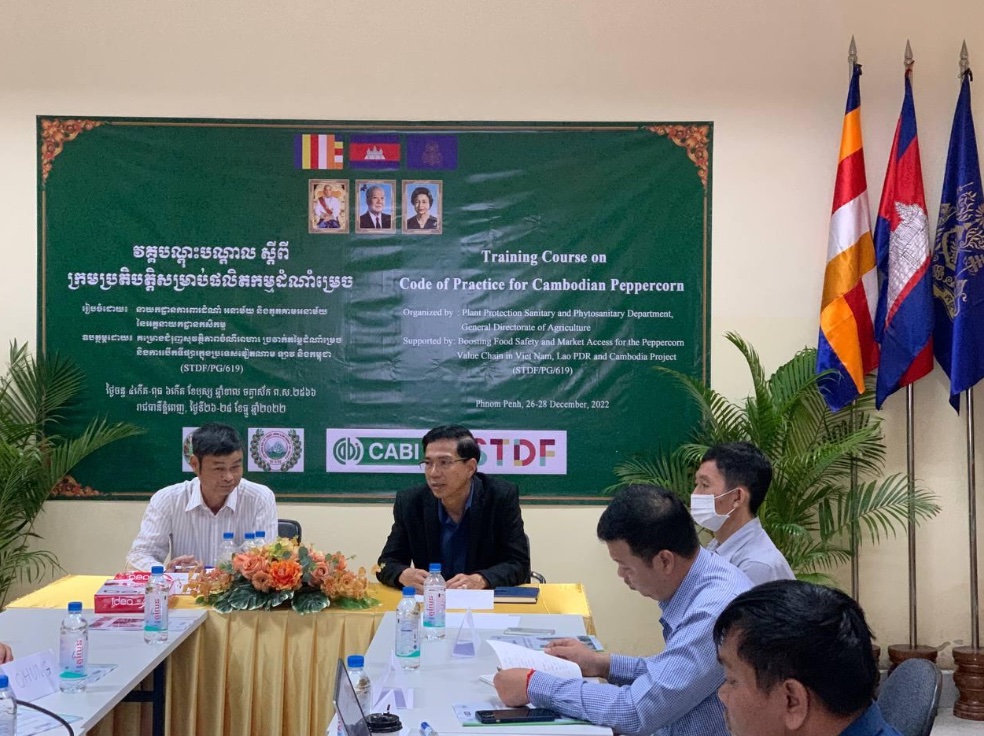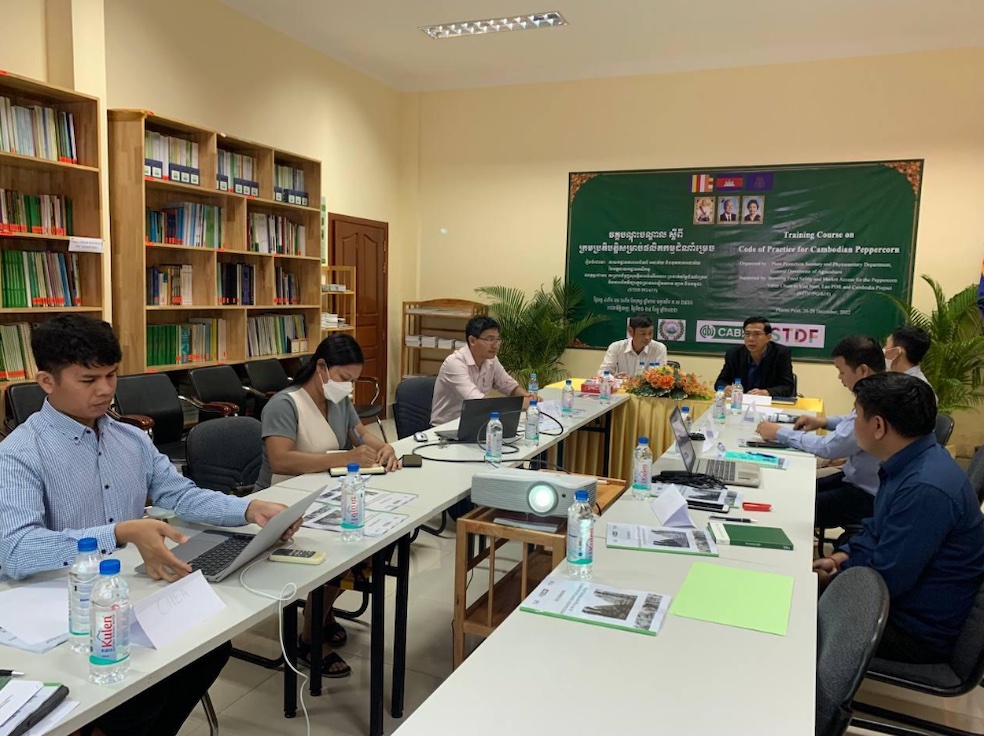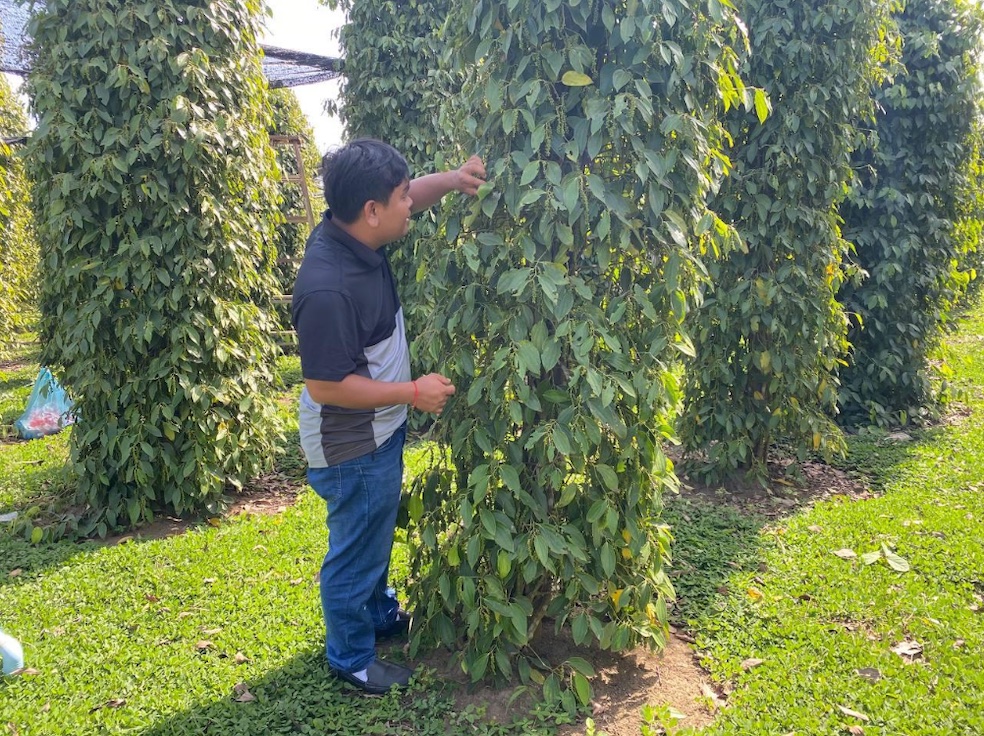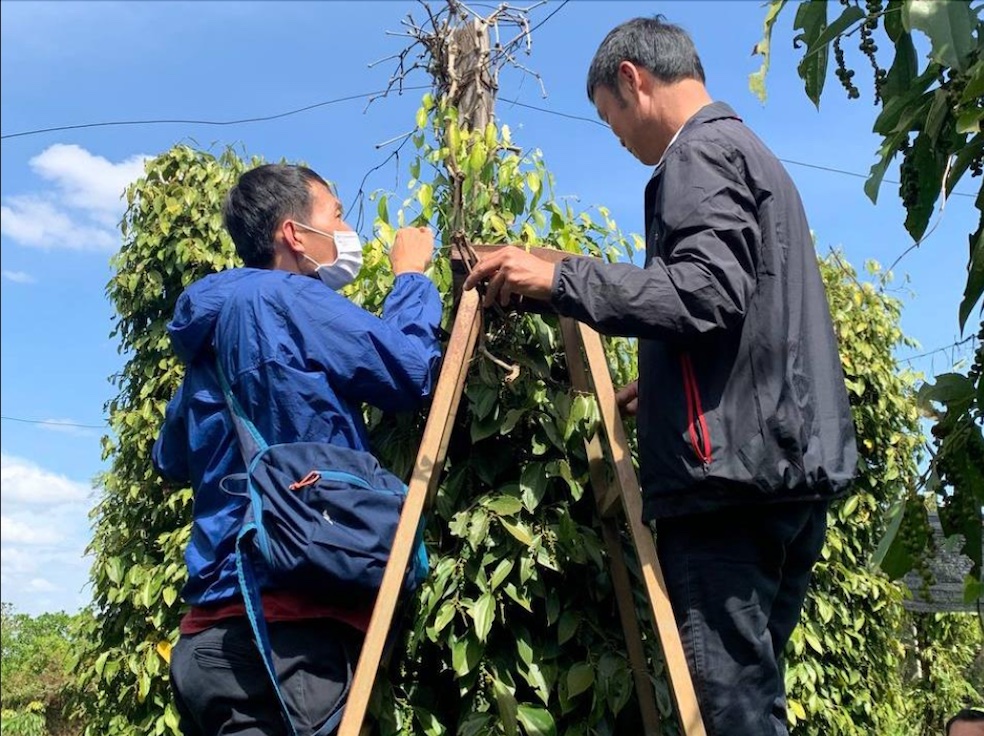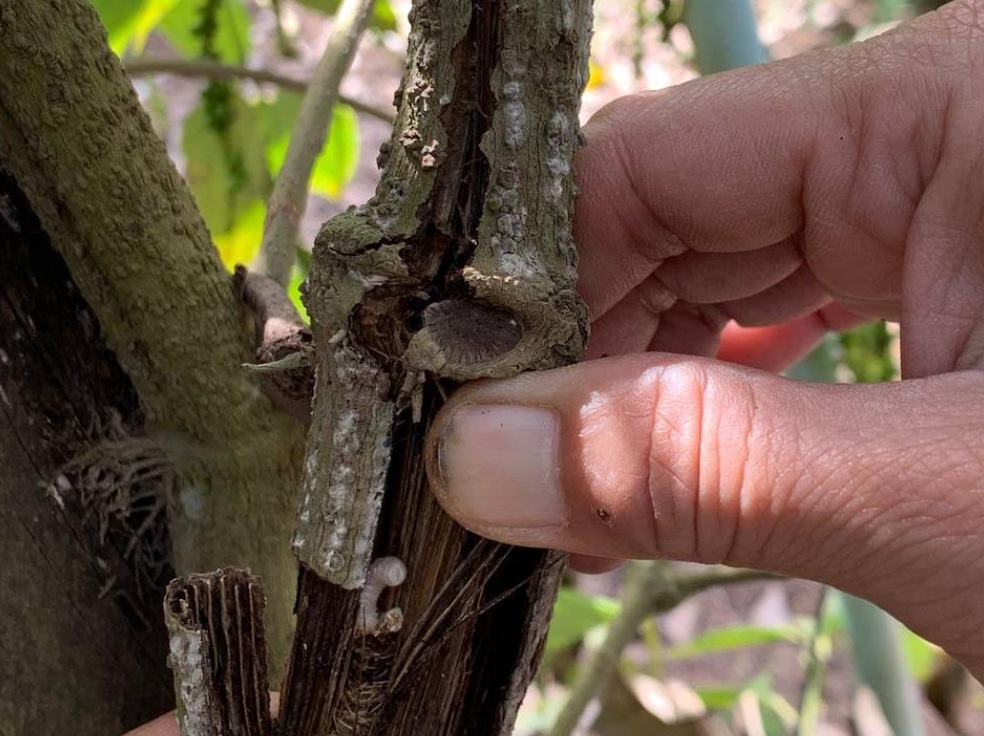
Details of activities carried out:
During the intensive training, the CoP trainers from Vietnam introduced the black pepper plant and peppercorn production in Vietnam. The experts showed the production size and areas of black pepper, import and export of black pepper and pepper production. They stated that Vietnamese black pepper production is affected by climate change and pests and diseases, causing market access problems and increasing input costs.In the course of CoP procedures, there are a total of 8 sections that trainees need to learn. However, due to time constraints, we have selected important sections which are deemed to be of priority such as Section 1: Management of black pepper variety, Section 2: Management of new plant planting and rejuvenation, Section 3: Nutrition management for black pepper, Section 4: Irrigation management for black pepper, Section 6: Weed and intercropping management in the black pepper garden, Section 7: Pest and disease management for black pepper and Section 8: Management of harvesting and pre-processing and preservation
After one day of training at the Plant Protection Sanitary and Phytosanitary Department, the experts and GDA officers went to visit peppercorn farms in Memot district. During the field visit, GDA officers learnt many aspects of the strengths and weaknesses of growing pepper farms through observation: the benefits of cover crops growing between rows (inter-row) of pepper plants, pests and diseases, indication on pepper varieties, identifying resistance varieties to nematodes, Phytophthora and other diseases, identifying major pests (mealy bug or scale), applying irrigation systems, fertilizer application usage (chemical fertilizer, foliar fertilizer, organic fertilizer), pesticide usage, weed management, harvesting and processing (normally, peppercorn are harvested three times during the harvesting period; 20% 60% and 20%).On the last day, GDA officers and the experts came back to join the class again after GDA officers wrapped up activities in the pepper fields. The experts commented on their weaknesses and strengths and provided recommendations to farmers in accordance to international standards and practices.

 BACKGROUND
BACKGROUND